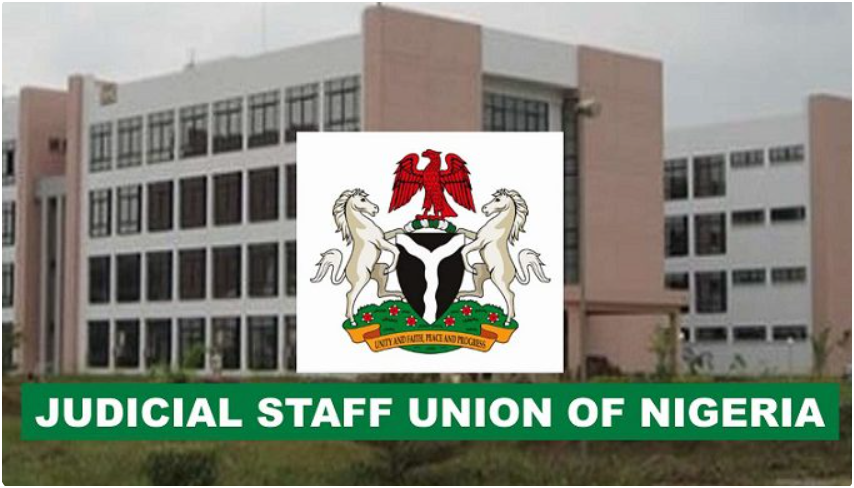Strike Drama Deepens as Judiciary Heads Disown JUSUN Walkout
Byline: IDNN Labour Desk
Abuja — The crisis rocking Nigeria’s judiciary escalated Monday as the National Judicial Council (NJC) and the Supreme Court publicly withdrew from the ongoing JUSUN strike, distancing themselves from the action and effectively splitting the nation’s judicial community.
The strike, led by the Judiciary Staff Union of Nigeria (JUSUN), had shut down federal courts across the country since Monday morning, demanding:
-
Payment of withheld salaries
-
Full implementation of financial autonomy for the judiciary
-
Respect for previous MoUs signed with the government
But in a memo sent to court registrars nationwide, the NJC declared that it was not part of the strike action and would continue full operations at the Supreme Court and other affiliated federal courts.
JUSUN: “This is Betrayal at the Highest Level”
Reacting furiously, JUSUN leadership accused the NJC and Supreme Court of “selling out their own workers” in the fight for institutional respect and staff welfare.
“We’re fighting for the survival of the judiciary, and they’ve chosen silence over solidarity,” said a top union official.
JUSUN vowed to press on, insisting that state and lower courts would remain shut until their demands are met.

Who Stands Where?
-
Closed: Most Federal High Courts, Appeal Courts, Industrial Courts
-
Open: Supreme Court, NJC, some appellate divisions
-
Caught in the middle: Magistrate courts, registrars, and paralegal units confused about what directive to obey
IDNN POWER PLAY ANALYSIS
The Judiciary Is Divided — and It’s Showing in the Courtroom Trenches
The move by the NJC and Supreme Court to distance themselves from the JUSUN strike may be legally strategic — but it’s politically explosive.
👉 Why It Matters:
-
The fight for judicial autonomy is a decades-long battle in Nigeria.
-
JUSUN has often acted as the frontline enforcer, shutting down courts to compel executive compliance.
-
But this time, the top of the judiciary pyramid is not backing the troops.
👉 What It Signals:
-
A growing disconnect between senior judicial officers and rank-and-file staff.
-
Possible behind-the-scenes pressure from the presidency or AGF’s office to downplay the strike.
-
A crisis of credibility for NJC’s commitment to staff welfare.
👉 Public Perception Risk:
If the judiciary can’t stand united when fighting for its own autonomy — can it be trusted to protect constitutional governance?
🗣️ Bottom Line: This split may weaken JUSUN’s leverage and embolden future state defiance of judicial financial independence — unless a resolution comes fast.
